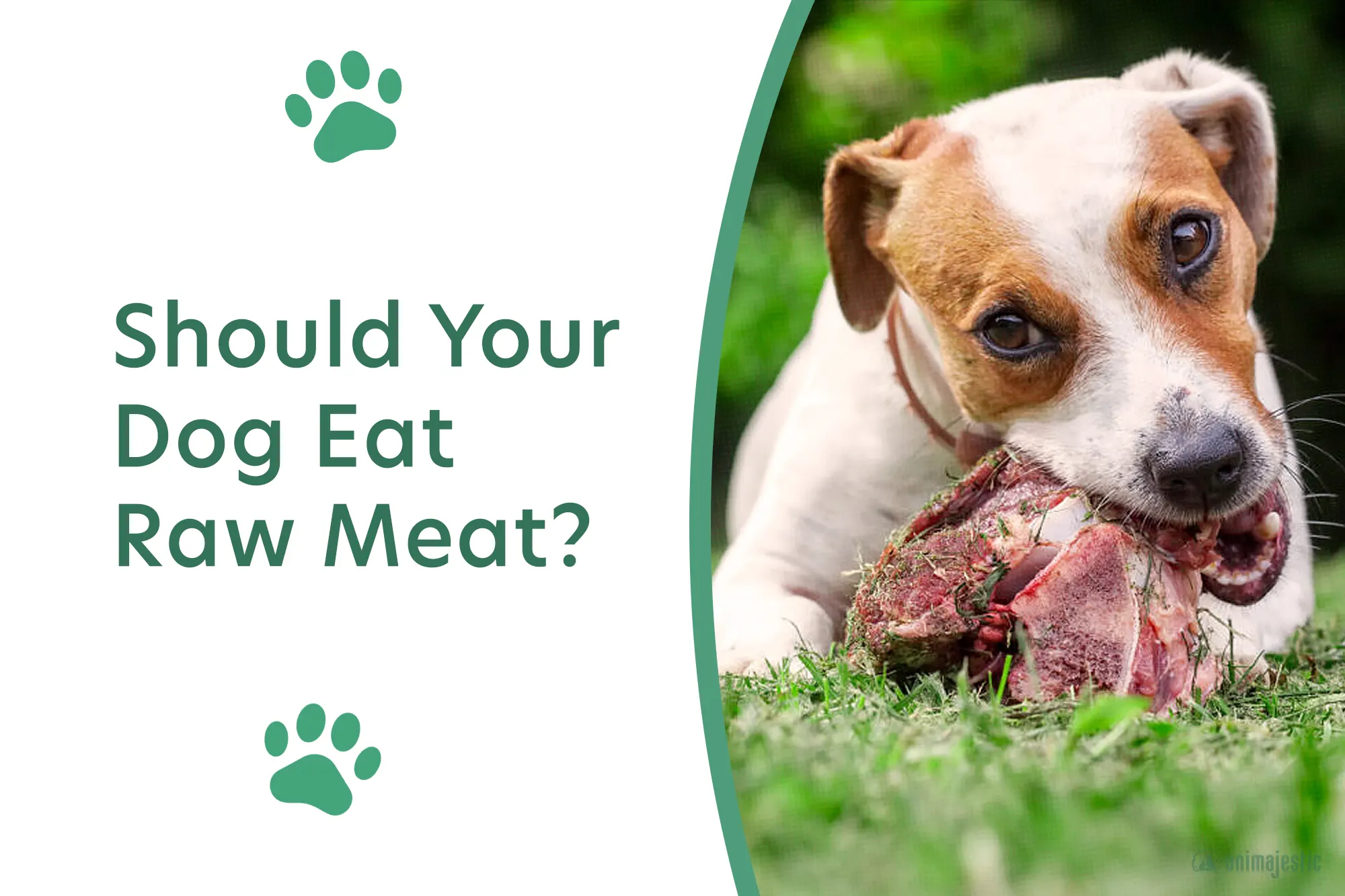Today’s hot topic is whether or not you can feed your dog raw meat. It’s a divisive issue that has many dog owners passionately arguing on both sides of the fence. And as a responsible pet owner, it’s essential to have all the facts about a raw meat diet before making any decision about your dog’s nutrition.
Dogs and Raw Meat
First, let’s take a trip down memory lane. Dogs have been around for tens of thousands of years, evolving from wolves to the lovable, drool-covered companions we know today. Along the way, their diets have also evolved. While dogs are now generally considered omnivores, the primary source of sustenance for their wild ancestors was undoubtedly meat.
In the early days, dogs scrounged and hunted their food, sometimes feasting upon raw meat. It’s natural to assume that a diet consisting of raw meats might be more closely aligned with their heritage, leading some dog owners to wonder about replicating this ancestral feeding pattern.
The Raw-Food Diet: Benefits
Feeding dogs raw meat has its benefits. Advocates for the raw-food diet (technically known as the BARF diet, which stands for Biologically Appropriate Raw Food), highlight several potential advantages, including:
- Improved digestion: Raw-food advocates believe that dogs’ stomachs are better equipped for breaking down raw meats, leading to more efficient digestion.
- Cleaner teeth and fresher breath: Gnawing on large chunks of raw meat can help dogs clean their teeth and reduce tartar buildup.
- Healthier skin and coat: A raw diet is rich in natural fats, which can benefit your dog’s skin and coat’s appearance.
- More energy and vitality: Raw-food proponents argue that a diet abundant in raw meats can improve your dog’s energy levels, making them more active and energetic.
- Weight management: As a result of the nutrient-rich diet, some dogs may find it easier to manage their weight on a raw food diet.
However, these benefits are anecdotal and have not yet been scientifically proven. It’s vital to understand the potential risks associated with feeding raw meat to dogs.
The Raw-Food Diet: Cons
Before you make a decision, it’s essential to weigh the evidence against feeding raw meat to dogs. Here are a few possible disadvantages:
- Bacterial contamination: Raw meat can harbor harmful bacteria such as E. coli and Salmonella. Consuming contaminated meat can lead to foodborne illnesses, not only in dogs but also in their human friends who handle the meat.
- Nutritional imbalances: Preparing a well-rounded and nutritionally balanced diet for your dog can be challenging. An improper raw-food diet can lead to deficiencies in essential nutrients and life-threatening conditions.
- Injury from bones: One of the most significant risks associated with feeding raw meat to dogs is the presence of bones. Dogs can choke on bones or sustain fatal injuries from splinters or lodged bone fragments.
- Parasites: Raw meat can contain internal parasites that can negatively affect your dog’s health, causing vomiting, diarrhea, or even death.
What do Experts Say?
Several reputable organizations, including the U.S. Food and Drug Administration, the CDC, and the American Veterinary Medical Association, all advise against feeding raw meat to dogs. These organizations point to the potential health risks outlined above as the primary reason for their recommendation, with the most important being that raw meat can contain bacteria like salmonella, which is dangerous for your dogs.
Some Alternatives to Raw Meat
If you’re still not convinced that raw meat is NOT the best option for your dog, there are a few alternatives to consider:
- Cooked meat: By cooking the meat, you can minimize the risks of bacterial contamination and parasites while still providing your dog with tasty and nutritious meals.
- High-quality commercial diets: Feed your dog a high-quality commercial dog food that incorporates meat as the primary ingredient. Many dog foods on the market cater to specific dietary needs and preferences.
- Home-cooked meals: If you’re willing to invest time and energy, you can prepare home-cooked meals for your dog, ensuring a balanced and nutritious diet. Consult your veterinarian for guidance on cooking and feeding practices.
The Verdict
The question, “Can you feed your dog raw meat?” doesn’t exactly have a simple answer. Yes, it’s possible, but you should be aware of the risks associated with it, and discuss with your veterinarian about the best course of action for your dog.
Ultimately, you need to find ideal nutritional balance for your dog’s specific needs. Every dog is unique, and what works for one dog may not work for another.
